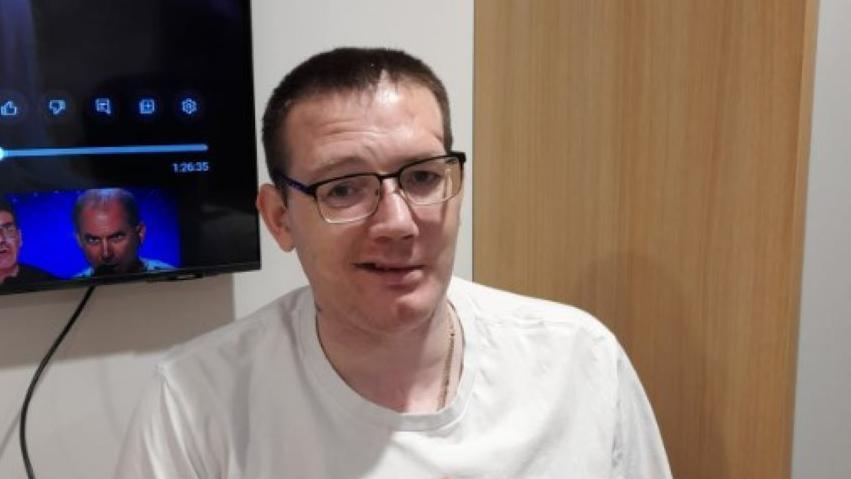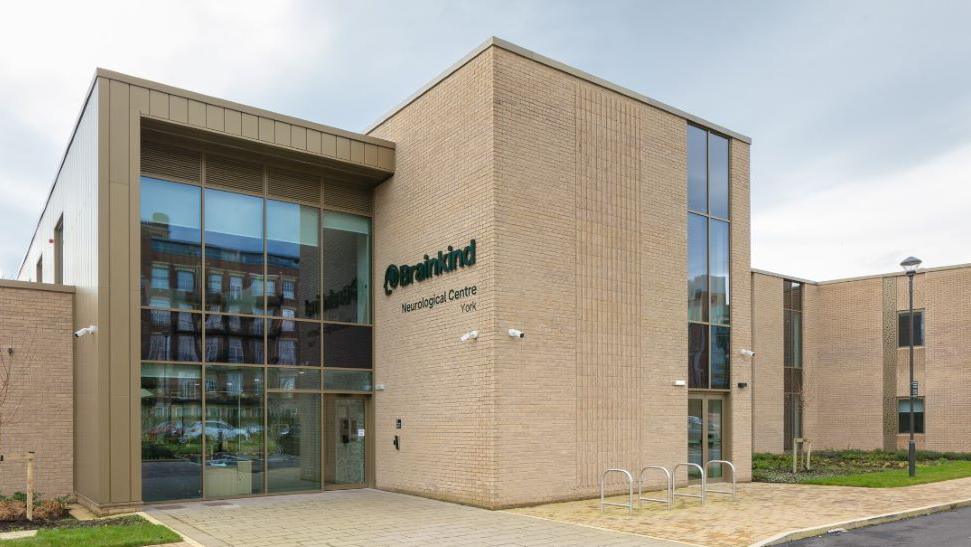Brain injury patient hails 'best place' to recover

Karl has been receiving treatment for his brain injury at the Brainkind Neurological Centre
- Published
A new hospital specialising in brain injury treatment has been hailed as the "best place" to help people recover.
The Brainkind Neurological Centre in Bishopthorpe Road, York, opened in June to rehabilitate people following accidents or illnesses.
The 36-bed facility, which was built in the grounds of the former Terry’s chocolate factory, offers neurobehavioral rehabilitation to help people regain their functional and social skills.
Patient Karl said the staff had been "very good" as he worked to get back his independence.
He said: “I don’t know how I got injured as I don’t remember anything, but they are pretty sure I was assaulted as I nearly died.
“My brain injury has affected everything, as my walking, talking, eating, sleeping all changed and I had to learn how to do it all again.
“But this has been the best place for working on all this as the staff have been very good and right now I’m getting better, as I’m managing my own money now, I’m going to the shops on my own, I buy my own food.”
He added that he was hoping to find a new place to live so that “I can keep working on my rehabilitation but be closer to my family”.

The Brainkind Neurological Centre opened in York in June
Miles Rogish, consultant clinical psychologist at Brainkind York, said the people who used the facilities had acquired brain injuries in a variety of ways - from road crashes or slips and falls to heart attacks.
He said the centre had a cafe and communal area for staff and patients, as well as a garden allowing residents to grow herbs and find some “private space”.
Mr Rogish told the BBC: “The centre allows them to participate in what we call neurobehavioral rehabilitation, which gives people the ability to practise social skills or functional skills and allow them to regain independence.
“People are here for just over a year on average and have had such severe brain injuries they are learning a new sense of self.
“So the team here tries to find their strengths and find things that allow them to grow and redevelop and redefine how they might react or feel a sense of joy or pleasure in life again because life after a brain injury can be horribly impacted.”
Listen to highlights from North Yorkshire on BBC Sounds, catch up with the latest episode of Look North or tell us a story you think we should be covering here, external.